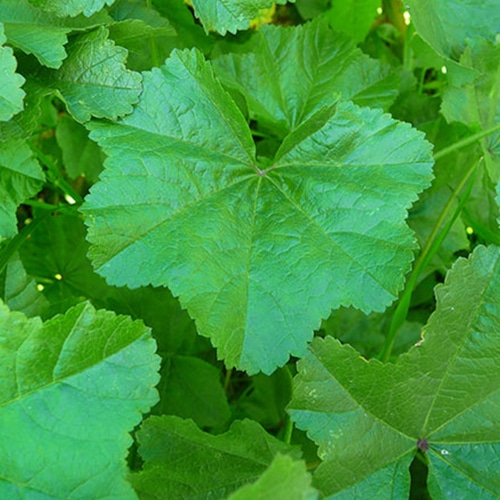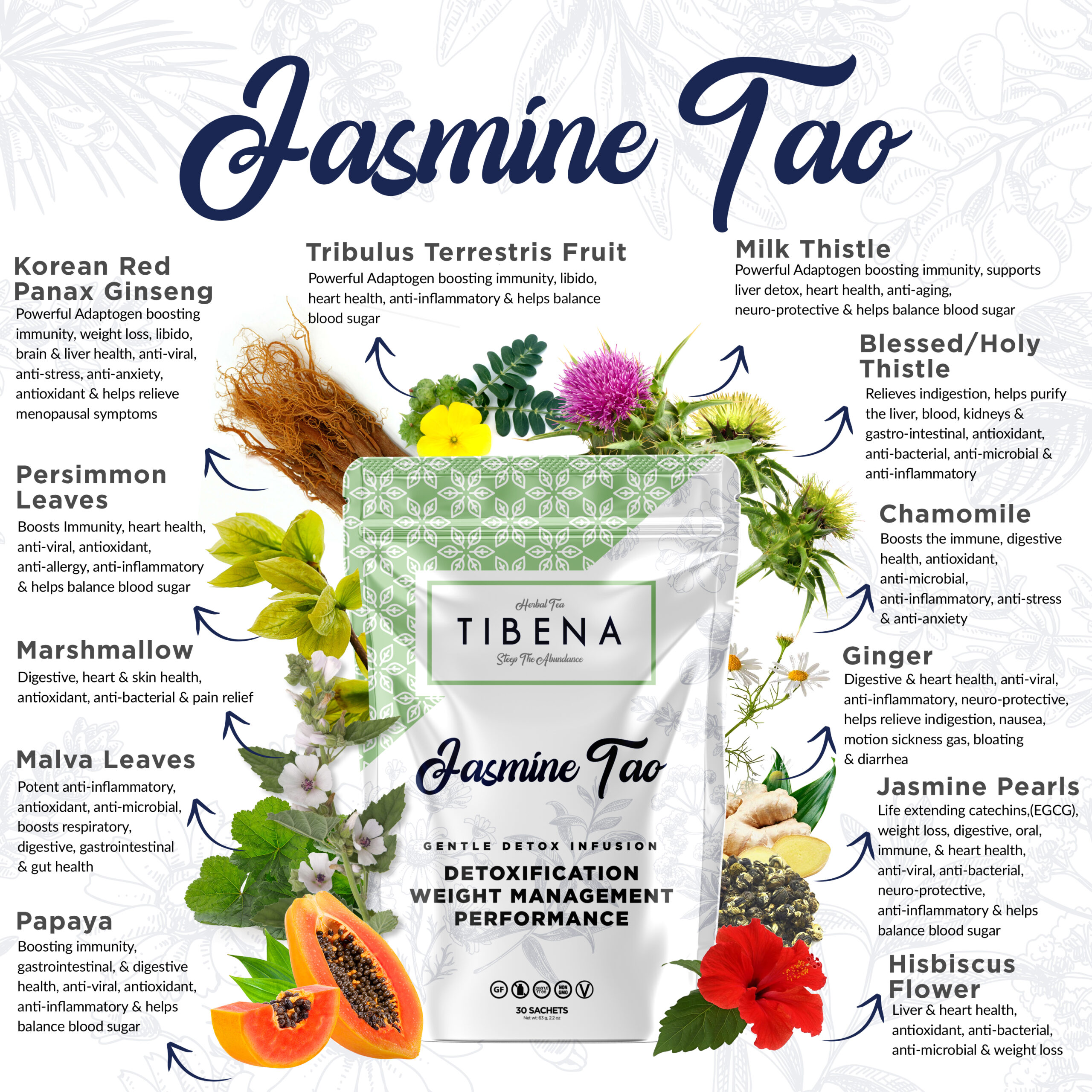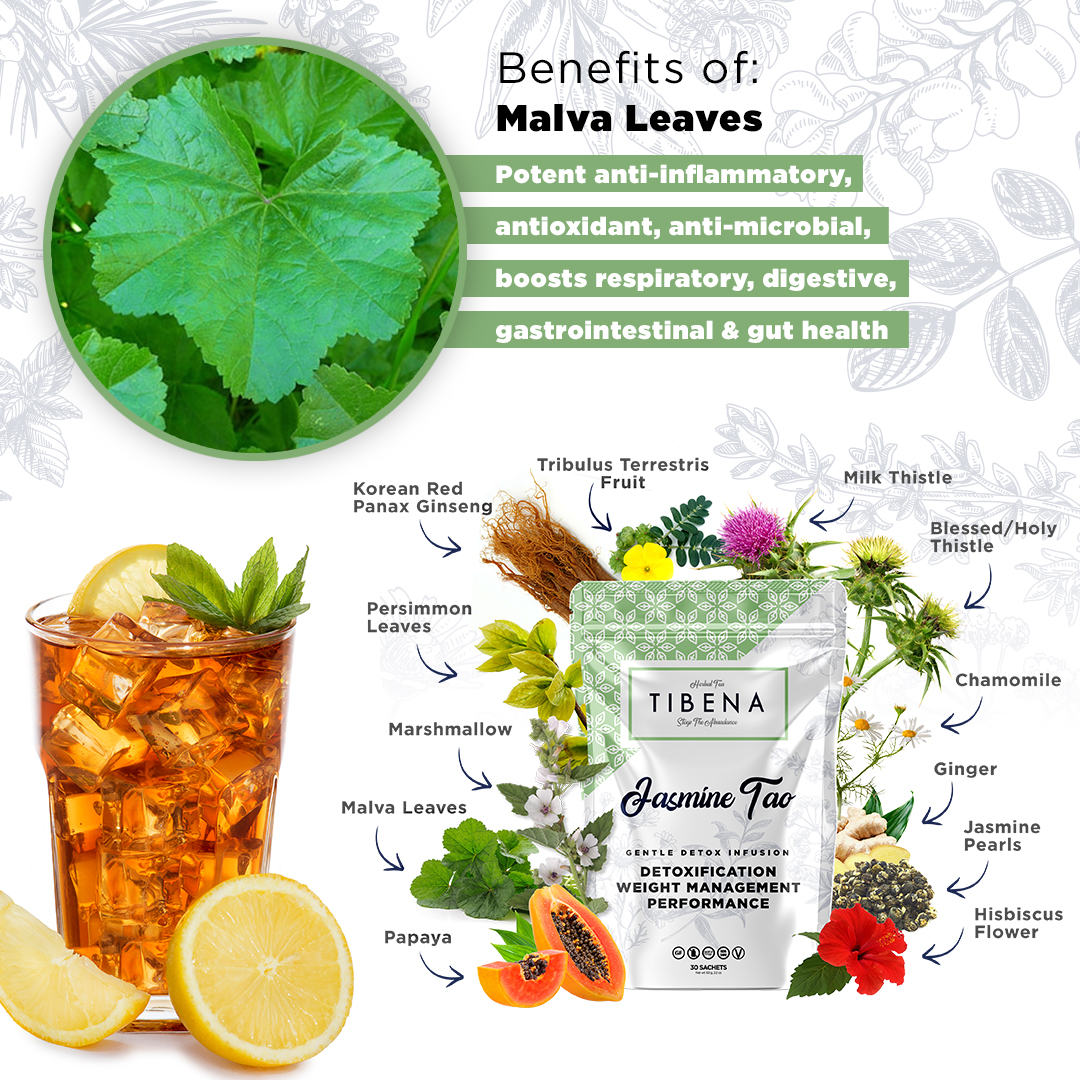
Studies have shown Potential Benefits:
Potent anti-inflammatory, antioxidant, anti-microbial, with soothing gastrointestinal properties, promoting respiratory, digestive & gut health
Malva Leaves
Malva sylvestris is widely used in Mediterranean and European traditional medicine for the treatment of external and internal inflammation, as well as injuries. Malva Sylvestris has been known in folk medicine as the miraculous mallow. The word “malva” is derived from malakos, which in Greek means “soothing”; not surprisingly, malva tea or teas with malva leaves are often given as a gargle to reduce throat inflammations. The leaves are the richest in nutraceuticals such as powerful antioxidants (phenols, flavonoids, carotenoids, and tocopherols), unsaturated fatty acids (e.g. alpha-linolenic acid), and minerals. Nutritional constituents: Vitamins A,B,C,E; inulin; mucilage; phenols; flavonoids; essential fatty acids; fiber; calcium; magnesium; zinc; selenium; potassium. With a long history of medicinal use, mallow leaves, due to the high mucilage content, are excellent soothing demulcent herbs, especially for cases of inflammation, either for the urinary, digestive health or respiratory systems. Drinking the Malva Tea Leaves also helps calm stomach and intestinal irritation. An interesting note is that Malva Leaves has been used for generations in salads and soups. Keep your used Jasmine Tao sachets and use them in your soups for delicious, nutrients.
Malva Leaves have been used topically as warm compresses to draw toxins from pimples, abscesses and other skin inflammation while cool tea compresses can help to relive superficial burns. Malva Leaves in tea help relieve the pain of stomach upset, relax intestinal spasms and soothe irritated skin.


https://www.ncbi.nlm.nih.gov/pubmed/20233600 – Nutraceutical potential & composition, anti-inflammatory
https://www.ncbi.nlm.nih.gov/pubmed/28214685 – Antioxidant, Gentle treatment for constipation
https://www.ncbi.nlm.nih.gov/pubmed/29289893 – Antioxidant
https://www.ncbi.nlm.nih.gov/pmc/articles/PMC4610699/ Anti-inflammatory, anti-microbial
https://www.ncbi.nlm.nih.gov/pubmed/29099738 – Anti-inflammatory
https://www.ncbi.nlm.nih.gov/pubmed/27643502 – Calms inflammation,
https://www.botanical-online.com/en/natural-medicine/bronchitis-medicinal-plants – Soothing to respiratory Tract for coughing, cold, sore throat and bronchitis.
https://www.researchgate.net/publication/309384495_Chemical_composition_and_antioxidant_properties_of_Malva_sylvestris_L – Chemical composition of Malva Sylvestris
https://www.ncbi.nlm.nih.gov/pubmed/31713320 – Pharmacological Composition
https://www.ema.europa.eu/en/documents/herbal-report/draft-assessment-report-malva-sylvestris-l/malva-neglecta-wallr-folium-malva-sylvestris-l-flos-first-version_en.pdf History, uses, overview
https://www.ncbi.nlm.nih.gov/pmc/articles/PMC3586856/ – Anti-microbial benefits
https://www.ncbi.nlm.nih.gov/pubmed/27780138 – Kidney health
https://www.researchgate.net/publication/308779402_A_REVIEW_ON_BIOLOGICAL_ACTIVITIES_OF_COMMON_MALLOW_MALVA_SYLVESTRIS_L – Review of biological activities of Malva Sylvestris,
https://onlinelibrary.wiley.com/doi/10.1111/j.2042-7158.2011.01383.x – Malva Sylvestris, a millinimual herbal medicine – The leaves in particular have been reported to have potent anti‐inflammatory, antioxidant, anti‐complementary, anticancer and skin tissue integrity activity. Additionally, an anti‐ulcerogenic effect was recently proven, demonstrating that the aqueous extract was more effective than cimetidine, a potent medicine used to treat gastric ulcers.
Additionally, an anti‐ulcerogenic effect was recently proven.
